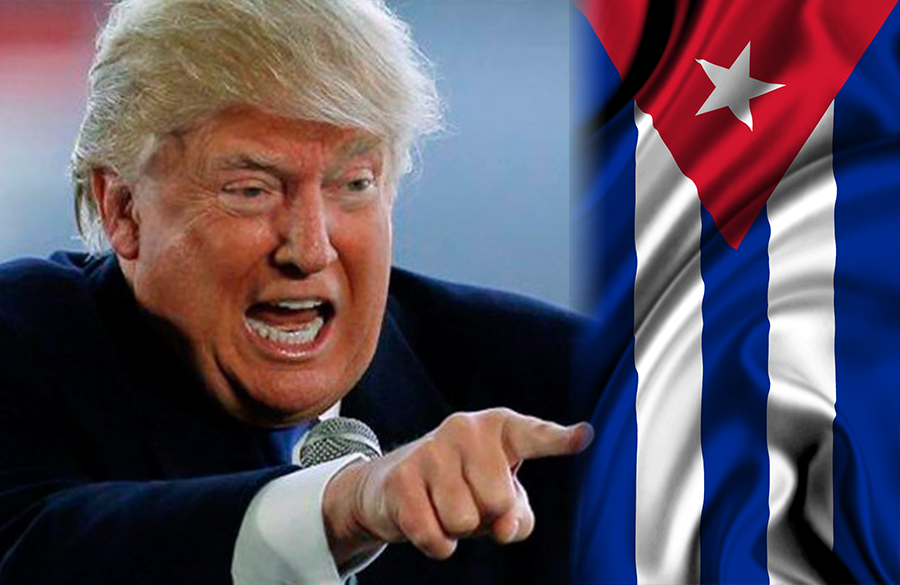
Waiting for Godon’t
During the presidential campaign last year, Mr. Trump promised to reverse President Obama’s new policy toward Cuba “until freedoms are restored.” Later in the campaign, as Breitbart.com reported, Governor Mike Pence assured Miami-Dade County Republicans, “When Donald Trump and I take to the White House, we will reverse Barack Obama’s executive order on Cuba,” giving that promise more of Day One feel. But when Rex Tillerson was asked, during his confirmation hearing to serve as Secretary of State, if he stood by Mr. Trump’s commitment, he told the Senate Foreign Relations Committee, “Yes,” but he went on to add, “There will be a comprehensive review of current policies and executive orders regarding Cuba to determine how best to pressure Cuba to respect human rights and promote democratic changes.”
It isn’t Day One anymore. So it’s fair to wonder what’s happening with the policy review, why the apparent delay, and what the substance of a future action would be. Since we don’t have an independent line into the West Wing of the White House, we’ll tell you what we think we know (without getting too far ahead of the facts).
[Note: As we prepared for publication of this report, a new report by Patricia Mazzei of the Miami Herald quoted Florida Senator Marco Rubio saying “I think without a doubt there will be changes in U.S.-Cuba policy,” which he expects President Trump to undertake “strategically.”]
On timing. We heard at a meeting of allies this week that the administration could take action on Cuba as early as the middle of next month, curiously close to the 56th anniversary of the Bay of Pigs invasion. This would be desperately odd timing for President Trump to announce a reversal of the Obama policy and keep his promise to Brigade 2506, veterans of the failed invasion.
The review and the delay. With so many policy hardliners among the Trump transition and landing team staffs, we were skeptical that the policy review would amount to more than window dressing before the campaign promise on Cuba was kept. But the pervasive absence of political appointees across the government — coupled with the firing of Craig Deare, who served so briefly as the National Security Council’s Senior Director for the Western Hemisphere — means there hasn’t been a central White House figure managing the process. The foundational work quite properly was done by career staff at agencies like State and Treasury. These are foreign policy officers and civil servants with the experience to analyze the policy (they have also witnessed the positive results of the last two-plus years), but they lack the decision-making authority that would normally be exercised by appointees at the desks which now have empty chairs. Without them, it is unimaginable for the process to reach a conclusion.
It’s not just Cuba. Reuters reported today that preparations for the next G7 major powers meeting are being delayed by vacancies in both the deputy secretary of state positions and all six regional bureaus, with one European diplomat saying, “We no longer know who to talk to. It is slowing everything down.”
Under normal circumstances — even understaffed as it is, laboring under no deadline, statutory or political — it would cost the Trump administration nothing to slow down so that it could complete the Cuba policy review in an orderly and thoughtful way.
But these are extraordinary times. With the administration’s defeat on health care one week ago, along with chaos in the Capitol over Russian hacking of our election, The Economist is predicting — and we tend to agree — the President will forcefully and, as they say, “theatrically,” move into the “full-throated use of executive orders” to put some points on the board, especially by aligning them with his instincts about exercising power and keeping his campaign promises.
What’s next? President Trump’s approach to Cuba, which is bad for both countries, dispenses with diplomacy and tries to steamroll Cuba’s sovereignty.
Just as the President tried coercion over consensus-building in the House of Representatives, as the New York Times observes, in an unsuccessful effort to enact health care reform, we think he’ll use the same of approach of “threatening sticks and promising carrots” to Cuba, as he promised last fall.
Which was, by the way, exactly what Congressman Mario Díaz-Balart suggested he should do, as we reported last week, when he asked the administration to implement his plan — which gave Cuba’s government 90 days to meet our demands or face the re-imposition of sanctions — in exchange for winning his vote on health care.
That brings us back to what Sen. Rubio talked about with Mega TV host Oscar Haza earlier this week. When he said he expects the White House to address U.S.-Cuba policy “strategically,” was he referring to the President’s threat to restore every restriction President Obama eased unless Havana capitulates to his demands? Yeah, we think so.
Believe us. Obviously, we’d like to see a more favorable outcome. We’d prefer the Obama opening not just remain in place but be expanded to further serve the national interests of the United States and the Cuban people.
As the Cuba review continues, we feel like we’re waiting for Godot, and we’re reminded that April so often is the cruelest month.
(From Cuba Central)


